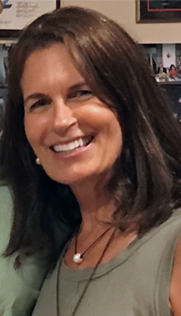
Thursday, June 24, 2021 (Listed under Publications)
Mark Z. Jacobson is not only a renewable energy expert; he's an athlete, an author, a globally recognized speaker and an atmospheric science professor and thought leader at Stanford University. He's also the author of a complete guide to renewable energy: 100% Clean, Renewable Energy and Storage for Everything (Cambridge University Press, 2020)
In this Zoom interview on my StacyClarkBooks site, Jacobson shares his journey from a competitive tennis player in smog-filled 1970s Los Angeles to his invitations to speak with Google execs, David Letterman, then Vice President Joe Biden and attendees of the 2015 Paris Climate Conference.
What drew him to these audiences?
In a nutshell, Jacobson, with the help of his students, his UCLA and Cornell University colleagues and his partners at The Solutions Project, used his technological vision to map the globe for a 100% renewable energy transition by 2050.
Jacobson was first inspired to solve atmospheric pollution problems when he played competitive tennis in California as a teen. You can read about this in my REW review of his book.
From there, he racked up degrees from Stanford and UCLA. His renewable energy modeling work as a Stanford professor began with one state, New York, and that achievement led to 49 more states and 143 countries!
As Jacobson explains here, he feeds the costs of climate change on the environment and human health into his models and balances the projected supply of renewable energy in each region with the demand for its use, given population growth, etc. over the next 29 years. These are the only maps of their kind that are easily accessible to the public. Click on your state or country to view the renewable energy mix that's unique to your region:
Jacobson shares the story of how The Solutions Project came together ten years ago, when clean energy financier Marco Krapels introduced him to actor Mark Ruffalo and filmmaker Josh Fox. The four men joined forces—and their social networks—to build 100% renewable energy maps. The idea was a simple one: to enable the public and policy makers to make persuasive cases for a sustainable energy transition.
Cultural influencers came aboard to help, including Leonardo DiCaprio; Ellen Rockefeller; Robert Redford; Yoko Ono; Deborah Winger and, Leilani Munter, then a professional race car driver. Munter's contribution to the energy transition story is a unique one which Jacobson illustrates.
Also discussed is Jacobson's solar powered home in Stanford, CA, which has become a showcase for how to harness the sun and become energy independent. Jacobson's house—complete with four Tesla Powerwall batteries—serves all his family's needs: heating and cooling, lighting, cooking, appliances, devices and his electric vehicles. He even sells excess electricity back to the power company.
When asked what people can do to quickly support the renewable energy transition if they can't build a solar home or lease solar panels for their rooftops, Jacobson suggests selecting an electricity provider that offers a renewable energy package.
As for what it takes for students to find their dream career, Jacobson encourages young adults to discover what they're passionate about and nurture their ideas to achieve success. For Jacobson, it was solving climate change and air pollution, for which math and science skills reign supreme. So, take it from him, math and science are anything but boring. Like music, math and science are global languages that people share to solve complex global problems. Technology, which is built on math and science, can be a kind of superpower for making the world safer, healthier, cleaner and more sustainable.
Like to code? Committing mathematic formulas to memory will help you get there. Want to cure diseases? Pay attention in science class and in the lab. You'll get there with determination and hard work.
In addition to following your passion, one other take-away from this interview is how important public speaking is to the success of any new idea. Not only did Jacobson have the ambition to tackle large-scale pollution problems, but he also perfected the communication skills to share his discoveries with the world. From his 2013 presentation at The Nantucket Project to his talks at numerous educational and energy conferences, Jacobson has made his life's work resonate with students, investors, innovators and global leaders. It's a super-hero kind of story and he's still a young man.
What's next for the brainy athlete from California? Stay tuned…
Jacobson's latest book, 100% Clean, Renewable Energy and Storage for Everything (Cambridge University Press, 2020) is available on Amazon here.
You can follow Jacobson on Twitter at @MZJacobson.
Facebook | Twitter | LinkedIn | Email
Powered by 100% Wind Power!
© 2026 Dallas Writer. All Rights Reserved.